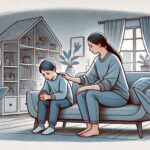Genetic predispositions to mental illness can interact with cannabis use and essentially ignite symptoms of psychosis that may otherwise remain dormant. The effect can result in Cannabis Induced Psychotic Disorder with the potential for lasting psychological impairment. Symptoms associated with the onset of cannabis induced psychosis include persistent auditory hallucinations (hearing voices), delusional thought patterns of a bizarre nature and irritability to name a few.
Why does cannabis, which is considered a relatively benign drug by many, manifest debilitating mental health issues for some young people? The short answer is due to the potency of cannabis today. According to the National Institute of Drug Abuse, in the early 1990’s the average amount of THC in cannabis was measured to be four percent.
By 2018 it was up to 18% and there are currently many strains of wax and other high potency products that contain more than 80% of THC. When cannabis levels of this magnitude are consumed, it can lead to psychotic episodes that resemble schizophrenia.
The research on cannabis use and psychotic episodes has begun to expand as cannabis use has become more common in recent years. A longitudinal study found young adults who tried cannabis before the age of 18 were 2.4 times more likely to develop schizophrenia.
Another study published in the Lancet found individuals who use cannabis daily were three times more likely to experience a psychotic episode compared to those who do not use the drug. The study also found cities with more easily available high potency cannabis were responsible for higher rates of new diagnosis of psychosis.
A separate research study found cannabis was a relative factor in as much as 50 percent of psychotic, schizophrenia, and schizophreniform episodes.
The problem has begun to become one of larger scale due to the expansion of cannabis use among children and adolescents. Most substance use disorders begin prior to adulthood so early use of cannabis increases the potential for addiction and serious mental illness.
Adolescence is a critical time for development and using THC can disrupt key stages of neurodevelopment. By 9th grade one in three boys and one in four girls has tried cannabis. In high school 14% of 10th graders are actively using cannabis, 23% of 12th graders and 22% of college students are consuming cannabis at least once a month.
Moreover, during adolescence cannabis is associated with increased visits to the ER for psychiatric reasons. With chronic use of cannabis in childhood and adolescence the potential for a thought disorder like cannabis induced psychosis increases making the public perception that cannabis is safe alarmingly inaccurate.
What Can Parents Do?
As a parent or concerned adult there are steps that can be taken to reduce the likelihood of having to experience cannabis induced psychosis symptoms. First, model the type of behavior you expect from your child. If you want your children to abstain from using cannabis it will be much more difficult if they witness substance use at home.
Next, talk to your children about cannabis and other drugs on an ongoing basis. Help them to understand the dangers of cannabis use and gain awareness of the potential long-term risks. If you’re wondering if your child is already using THC, consider drug testing at home. Easy to use and fairly accurate over the counter drug tests can help identify substance use that may otherwise be missed.
If there is a positive test result, look for support from a professional who has expertise in treating substance use disorders or addiction.
At A Mission for Michael the clinical team has seen individuals come in for treatment due to cannabis induced psychosis consistently over the past few years. Early intervention and treatment may help reduce the severity of the symptoms. On the other hand, individuals who are not treated early into their symptoms tend to respond more slowly to treatment. Treatment requires the entire family to work together as a team to support their loved one.
Relapse rates for cannabis use are particularly high for this drug due to the ease of acquiring it due to legalization and the inaccurate assumption that cannabis is safe. If you or a loved one are struggling with a substance or mental health issue, there are dedicated team members who can assist you in learning more about treatment options.










